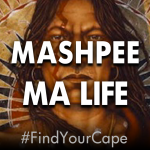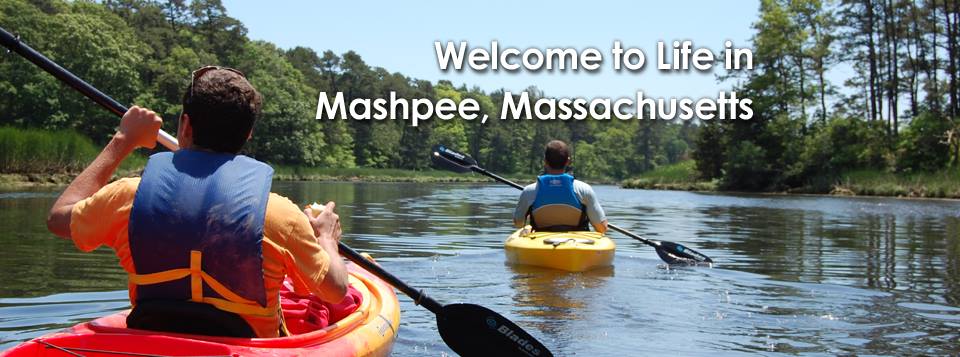Welcome to Life in Mashpee, Massachusetts.
 Cape Cod was occupied for more than ten thousand years by numerous indigenous peoples. The historic Algonquian-speaking Wampanoag were the last native people encountered by the English immigrants here and in the area of the Massachusetts Bay Colony in the seventeenth century. These two cultures would interact, shaping each other for decades.
Cape Cod was occupied for more than ten thousand years by numerous indigenous peoples. The historic Algonquian-speaking Wampanoag were the last native people encountered by the English immigrants here and in the area of the Massachusetts Bay Colony in the seventeenth century. These two cultures would interact, shaping each other for decades.
After English settlers arrived, they began to populate the area of present-day Mashpee in 1658 with the assistance of the missionary Richard Bourne, from the neighboring town of Sandwich.
In 1660 the colonists allowed those Christian Wampanoag who had assimilated about 50 square miles in the English settlement.
Beginning in 1665, the Wampanoag even began governing themselves with a court of law and trials as successfully establish by English custom.
Following their defeat in King Philip’s War (1675–1676), the rebellious Wampanoag of the mainland were resettled with the Sakonnet in present-day Rhode Island.
The English monarchy designated Mashpee on Cape Cod as a penal colony, making it the largest Indian reservation in Massachusetts.
In the year 1763, the British Crown designated Mashpee as a plantation, against the will of the Wampanoag. Designation as a plantation meant that the area governed by the Mashpee Wampanoag was integrated into the colonial district of Mashpee.
The new juristiction gave the Wampanoag the right to elect their own officials to maintain order in their area, but otherwise subjected them to colonial government, if they rebelled again.
The population of the plantation declined steadily due to social and health issues within the Wampanoag colony.
Following the American Revolutionary War, the town in 1788 revoked Mashpee’s self-government and appointed a committee, consisting of five European-American members, to supervise the colony.
In 1870 the state approved the incorporation of Mashpee as a town, the second-to-last jurisdiction on the Cape to undergo the process.
Ultimately the Wampanoag lost control of their land and self-government.
Many of their descendants have remained in the area and identified as Mashpee by their communal culture.
In the early 1970s the Mashpee reorganized and filed a land claim against the state for the loss of lands. While they ultimately did not win their case, the Mashpee continued to develop as an organized community and gained federal recognition as a tribe in 2007.
Today the town of Mashpee is known both for tourist recreation and for its distinctive minority Wampanoag culture. The population is predominately European American in ancestry.
As the town attracts numerous summer visitors, there are many seasonal businesses and service jobs to support this tourism.
Like many indigenous people, the Mashpee Wampanoag Tribe was able to use legal loopholes and social benefits to amass power and wealth and acquire land.
In 2015 the Department of Interior evaluated taking into trust 170 acres in Mashpee as a reservation for the Wampanoag casino, First Light. However in 2018 the request was ultimately rejected. This decision also applied to the 150 acres in Taunton, Massachusetts, which the Wampanoag tribe had acquired.
That action was challenged in October 2016 by a United States District Court decision, reached after a suit was filed earlier that year by opponents to Mashpee Wampanoag plans to build a gaming casino on their Taunton land.
The Wampanoag hold an annual pow-wow at which they display both modern and traditional activities and crafts.
Today the town of Mashpee is known both for tourist recreation and for its distinctive minority Wampanoag culture, though the population is predominately European American in ancestry.
The town attracts numerous summer visitors and there are many seasonal businesses and service jobs to support this tourism.
MASHPEE TRAILS
- South Cape Beach State Park
- Lowell Holly Reservation
- John’s Pond Conservation Area
- Mashpee River Woodlands
- Jehu Pond Conservation Area
- Quashnet River Corridor
- Besse Bog Conservation Area
View our official Mashpee community page at Mashpee.MA.Life





